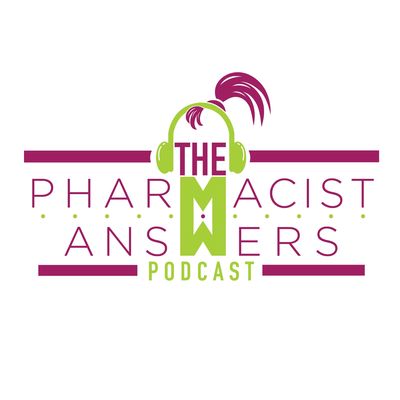Have a question for the pharmacist? Get your answers here! Clear explanations about complicated medical topics that anyone can understand.
http://pharmacistanswershere.wordpress.com
Allergy Attack
Allergy Basics Seasonal allergies can lead to nasal congestion and throat irritation, eye irritation with itchiness or watery eyes, or asthma-like symptoms. If you can’t breathe or swallow or see, call 911. At first sign of allergic reaction, take Benadryl (diphenhydramine). It’s an antihistamine to counteract the histamines that are part of an allergic reaction. Benadryl also comes as a topical. The other option is Cortisone (hydrocortisone) - a steroid. This can’t be used all over your body because it can soak all the way through your skin and get in your bloodstream, which would lead to systemic effects of steroids. If you need systemic effects, it’s best to get a steroid prescribed by a doctor. 1st Generation: Benadryl - drowsy side effects, works fast but wears off fast. 2nd Generation: Claritin, Zyrtec, Allegra - all have generics, all OTC, just take 1 time a day. Steroid nasal sprays are newly OTC - Flonase and Nasacort. Localized steroids in your sinus passages can help block the other chemicals involved in allergic reactions, not just histamines. The only medication that requires a doctor’s prescription is Singulair - it works best for asthma-like reactions that is produced in the lungs. Also, Albuterol inhalers can be used for people who have asthma-like symptoms to open the airways back up quickly. Is poison ivy cumulative in your body? (from @steve_tessler) When you come in contact with an allergen (poison ivy leaves), you body recognizes it as a “bad guy”. Once your body deals with the offender, it “remembers” poison ivy, so the next time you come in contact with it, your body’s systems can be more efficient at taking care of it (antibodies). A problem arises if your body does “too good” of a job or gets overzealous. This can lead to a more serious reaction or possibly anaphylaxis. Poison ivy is typically a topical offender. It would require an unusual type of exposure (i.e. burning it and inhaling the smoke) for it to affect other systems of you body than just your skin. Avoid poison ivy, poison oak, poison sumac, and any other poisons if you can help it. Note: I told a story on the live broadcast. Afterwards, I checked my facts and found out I told it wrong, so I cut it out. Here is the real story (to the best of my knowledge - I reserve the right to add or correct details as I learn the full story)… My husband’s grandfather burned a pile of brush that included some poison ivy or poison oak. He ended up breathing in some of the smoke which allowed it to go through his lungs and even into his bloodstream. It obviously caused a terrible, widespread reaction. And he would have an allergic reaction every year after that at about the same time as the original reaction.
Support us on Patreon
*NEW* Join the Pharmacist Answers Podcast Community on Facebook
Subscribe: iTunes, Stitcher, GooglePlay, TuneIn Radio
Like the Facebook page
